Last Updated on July 30, 2021
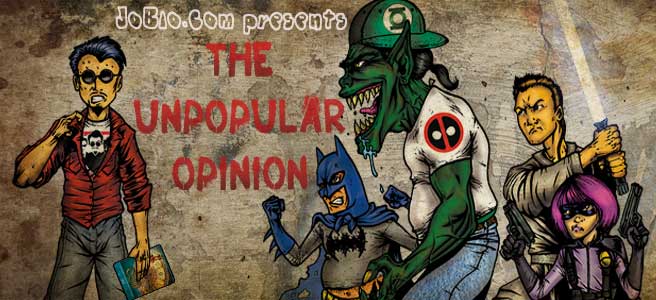
THE UNPOPULAR OPINION is an ongoing column featuring different takes on films that either the writer HATED, but that the majority of film fans LOVED, or that the writer LOVED, but that most others LOATHED. We're hoping this column will promote constructive and geek fueled discussion. Enjoy!
****SOME SPOILERS ENSUE****
As we approach the Academy Awards, certain films will be repeatedly tauted as the presumptive Best Picture of 2017. After the Golden Globes, both LADY BIRD and THREE BILLBOARDS OUTSIDE OF EBBING, MISSOURI are the frontrunners with THE SHAPE OF WATER lingering not too far behind. It seems that, once again, the Academy is destined to overlook the work of Christopher Nolan and his latest film DUNKIRK, whom they have snubbed for Best Director and Picture his entire career. Many think that he should have won for THE DARK KNIGHT while others feel that INCEPTION was a more worthy film. As a fan of Nolan's work, especially MEMENTO and THE PRESTIGE, I find it difficult to bestow the top honors on DUNKIRK which I found to be lacking in very many ways. While a good war film can both inspire patriotism and faith in the perserverance of humanity, DUNKIRK comes off as technically excellent but emotionally shallow. Christopher Nolan, once a filmmaker whom could do no wrong, has finally become the director who needs to stop doing the same thing over and over again.
The first Hollywood adaptation of the evacuation of Dunkirk, Nolan's film takes the unique approach of telling a story through three different timelines, each of which is executed at a different rate: the story of the soldiers on the beach is set over one week, the pleasure yacht housing three civilians headed to Dunkirk is told over one day, and the three Spitfire pilots defending their countrymen unfolds over one hour. All three of these segments crossover with one another at one point in time which is meant to feel like a puzzle piece sliding into place. Instead, it is a perfect example of why a keen director's eye is not a substitute for a screenwriter's heart. War, any war, is hell and to experience that hell as a viewer, a film must allow you an entry into that hell. In any World War II film, that entry can be anything from a civilian caught in the crossfire to an Allied soldier or an Axis enemy. In the case of DUNKIRK, we have myriad potential entry points into the hell of the events taking place and yet Christopher Nolan fails to make any of them more than two dimensional placeholders for his epic scale visuals.
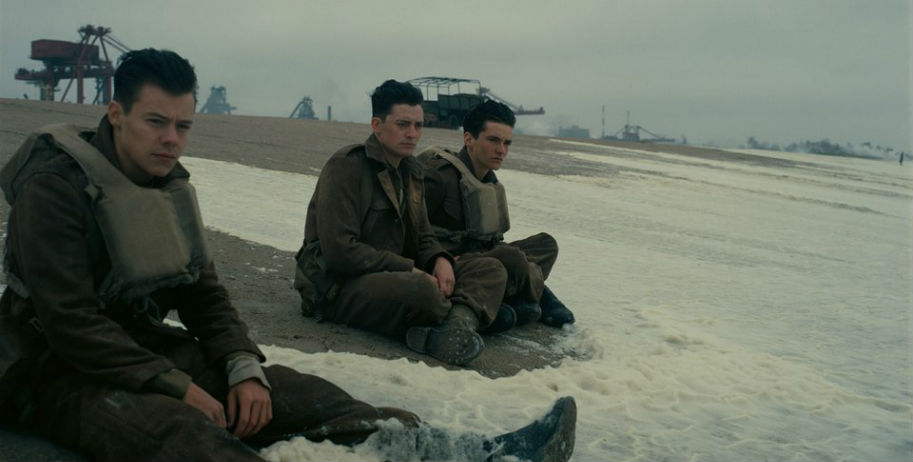
DUNKIRK is not a profound film by any stretch. You may disagree with that and tout all of the camera tricks, the practical effects, the switching aspect ratios, the non-linear structure or maybe even the scope of the setpieces on land, sea, and air, but these are all distractions from the fact that the movie doesn't really say anything about what war truly means or what can be learned from the dismal failure at the core of the evacuation. No, DUNKIRK is only part of the tale. The other big World War II film up for Oscar contention, the Gary Oldman starring DARKEST HOUR, tells the other side of England's colossal failure on the beaches of France. The two movies put together achieve something much more affecting than either does alone. But, DARKEST HOUR still manages to succeed on it's own merits where DUNKIRK still rings hollow. The fault lies with the screenwriter who happens to also be the director.
As a writer, Christopher Nolan has always worked better as part of a tandem. Whether it be his brother Jonathan or David Goyer, Nolan suffers when he doesn't have a voice to bounce off of. The exception to this may be INCEPTION which Nolan scripted by himself, but DUNKIRK proves that the talented filmmaker is more than capable of getting in his own way. Like M. Night Shyamalan before him, Christopher Nolan is at risk of falling prey to his own trademark cinematic skills and tricks. DUNKIRK is all flash and no substance which is quite the achievement for a film that barely pops off of the screen. The monochromatic palette Nolan paints this film with is a visual representation of how the film feels: numb and cold. I am not anticipating a movie like DUNKIRK to fill me with levity but I do need emotional resonance. Scene from scene proceeds to put the troops stranded on the opposite shore from their home country into dire situations that repeat. Fionn Whitehead's character, a man who selfishly pushes himself in front of thousands of others just because he wants to go home, is forced back over and over to the Dunkirk beaches. It may seem like a cosmic fuck you, but it just reinforces the banality of the situation.
DUNKIRK repeatedly shows us the same things over and over again. At first, the tension of each scene fills you with an adrenaline rush but that feeling wears off as the film enters into the cinematic equivalent of deja vu. Soldiers stand around and look forlorn, soldiers jockey to get on a ship, the ship is attacked, the soldiers get rescued while some perish, soldiers lament the price of war and then the same thing happens again only under slightly different circumstances. Each of the main characters we are meant to care about are thinly constructed shadows of real people. Aside from two brief scenes, we never see Tom Hardy's face, making him no more real than a STAR WARS stormtrooper. Mark Rylance has a couple of scenes of emotional intensity that are quickly explained away as being the result of his son, a killed RAF pilot, instilling him him the want to help other soldiers. Even the death of young George at the accidental hands of Cillian Murphy's shellshocked soldier feels unearned. Yes, I feel bad about the events unfolding on screen but I never feel bad for the characters themselves. That is the biggest failure of DUNKIRK.
Christopher Nolan has somehow crafted the most uninspired film possible about a historical event that became a beacon of inspiration for a country on the brink of defeat. There are countless films that have tackled World War II and managed to find an anchor for the viewer to connect to. Even Terence Malick's meditative THE THIN RED LINE had multiple characters that we could emotionally invest in. DUNKIRK never allows us the opportunity to spend enough time learning about these pilots, soldiers, and civilians to engage on any meaningful level. The argument could be made that DUNKIRK serves as a brief window into a historical event that leaves us as helpless as the men that were there that day, but that is a weak justification for sloppy writing. DUNKIRK's most intriguing characters are the ones we never really get to know much about. Fionn Whitehead, Harry Styles, Jack Lowden, and Barry Keoghan are given just as much screen time as Rylance, Hardy, James D'Arcy and Kenneth Branagh and yet we know virtually nothing about them. Because of this lack of engagement, DUNKIRK falls completely flat.
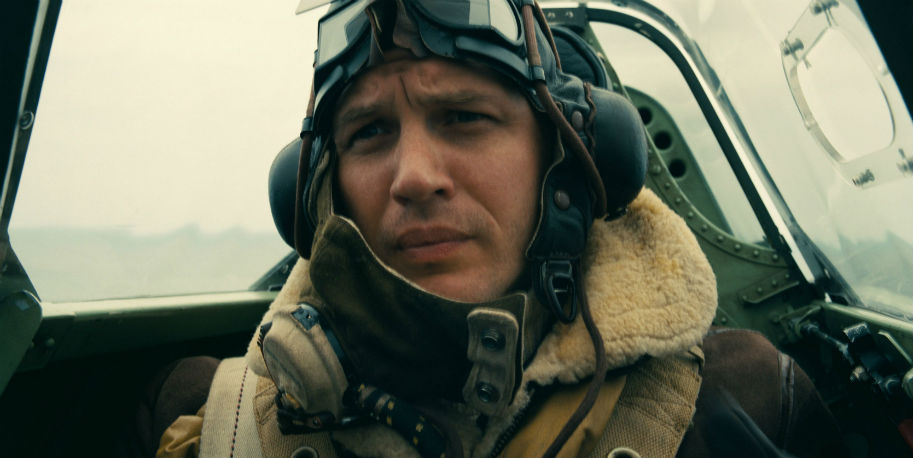
I do applaud the technical aspects of the film and found the sequences in air and on the capsized ships to be amongst some of the most thrilling war scenes put on screen. The score by Hans Zimmer is also one of my favorites of the year. The sound editing, mixing, cinematography and film editing are amongst the most impressive I have seen put on film and show Christopher Nolan at the height of his directing talent, but purely from a technical level. The humanity that inspired Nolan's films up to THE DARK KNIGHT seems to be missing here leaving DUNKIRK as sterile as INTERSTELLAR was before it. It may not be fair to compare Nolan to Spielberg, but the humanity at the heart of every film Spielberg has done is what makes him the master we all proclaim him to be. Nolan is on the verge of mastering his talents as a filmmaker, but I am beginning to fear that DUNKIRK is a sign that he is going to continue making the same beautifully proficient movies that lack the soul of a great film. I hope that I am wrong.






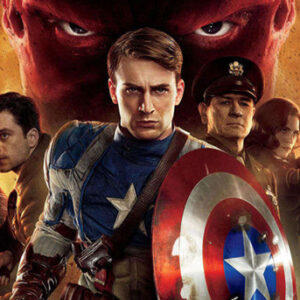
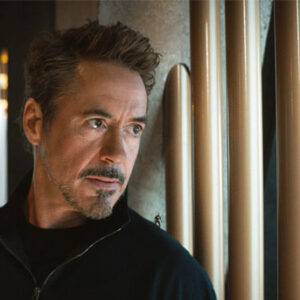












Follow the JOBLO MOVIE NETWORK
Follow us on YOUTUBE
Follow ARROW IN THE HEAD
Follow AITH on YOUTUBE